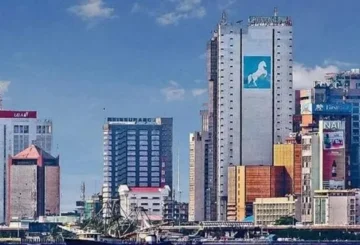 Shareholders of Stanbic IBTC Holdings Plc have commended the financial holding group for its financial performance in the 2018 financial year.
Shareholders of Stanbic IBTC Holdings Plc have commended the financial holding group for its financial performance in the 2018 financial year.
Key extracts of the audited report and accounts for the year ended December 31, 2018 showed that the group grew its top-line earnings to N222.4 billion in 2018 compared with the N212.4 billion in 2017. Profit before taxation rose by 44 per cent to N88.2 billion as against N61.2 billion while profit after tax rose by 54 per cent to N74.4 billion in 2018 as against N48.4 billion in 2017.
The balance sheet showed that group’s total assets grew by 20 per cent to N1.66 trillion in 2018 compared with the N1.39 trillion in 2017. Customer deposit grew by seven per cent to N807.7 billion from N753.6 billion. Gross non-performing loans decreased by 50 per cent to N17.7 billion in 2018 compared with N35.3 billion. This decrease impacted positively the gross non-performing loan to total loan ratio, which improved to 3.9 per cent, well below the regulatory threshold of 5.0 per cent and 8.6 per cent recorded in 2017. The non-performing loans figure became more impressive when viewed against the 14 per cent increase in gross loans and advances from N403.9 billion in 2017 to N458.9 billion in 2018.
Shareholders unanimously approved the company’s dividend per share of N1.50 for the 2018 business year.
At the annual general meeting in Lagos, shareholders said the performance of the company in 2018 was even more impressive considering the difficult operating environment in 2018.
President, Trusted Shareholders Association, Muktar Muktar, said the performance of the company was impressive and a good value creation for shareholders.
While thanking the shareholders for their commendation, Chief Executive, Stanbic IBTC Holdings Plc, Mr Yinka Sanni, assured that the company will not relent in its efforts to continue to deliver value to shareholders and other stakeholders.
“We will continue to leverage on our universal financial services capability, unrelenting focus on cost control, digitization and client centricity while operating as an ethical organisation to ensure that we continue to grow our capacity to provide incomparable high quality end-to-end financial solutions to our customers in a sustainable manner and remain profitable as a group,” Sanni said.
Sanni said the company’s balance sheet size was impacted by growth in risk assets and financial investment portfolio, a reflection of the group’s investment expertise and quality management.
According to him, strong growth in fees and commission income as well as write-backs, which resulted from recoveries made on previously written off loans and reversals on some non-performing loan, contributed to the strong showing.


